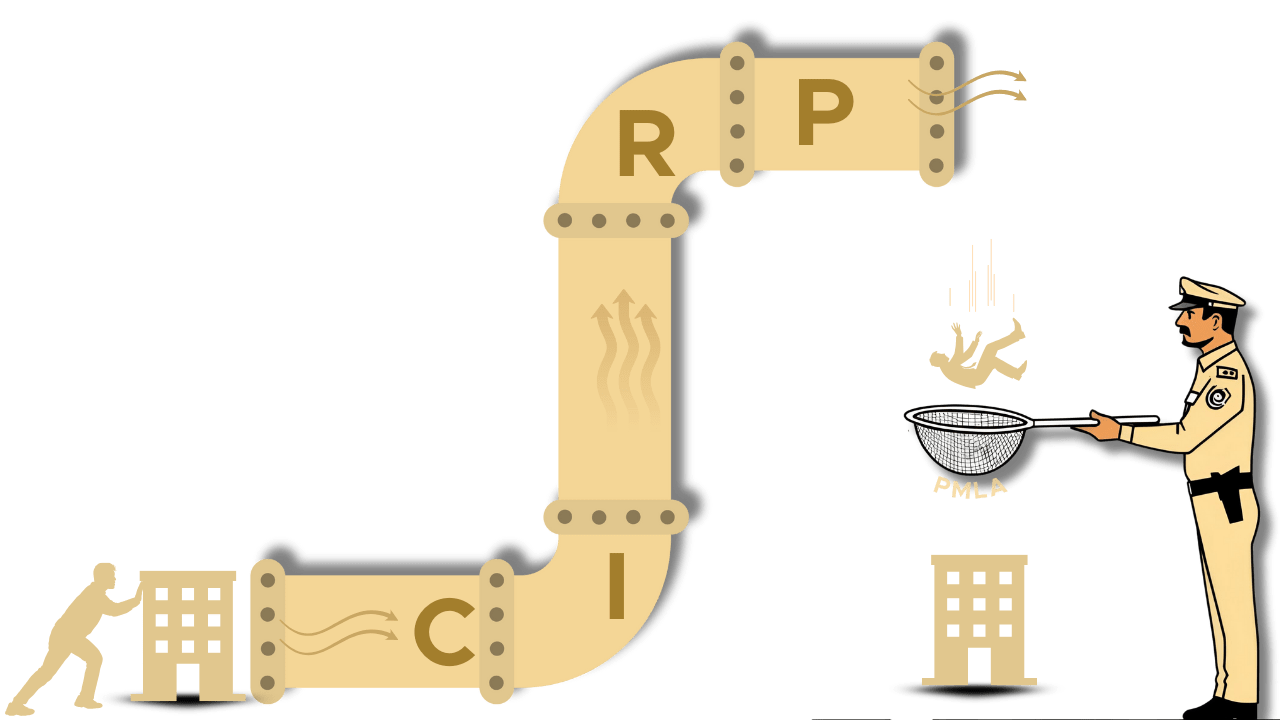Introduction
The insolvency legal landscape regarding the sacrosanct nature of timelines under the IBC1 has always been a topic of altercation. One of the fundamental jurisdictional questions is whether the NCLT2 can wield its discretionary power to condone delays in filing an appeal against a liquidator’s decision. Such a question becomes even more pertinent in light of the unprecedented extensions granted during the pandemic. This legal question was considered during a recent order in Electric Distribution Division-I v. Mrs. Anju Agarwal3 before the NCLT, Allahabad Bench, Prayagraj.
The Bench comprising Sh. Ashish Verma (Member Technical) and Sh. Praveen Gupta (Member Judicial), held that NCLT lacks the inherent jurisdiction to condone a delay beyond the statutory or judicially extended limitation period, reinforcing the principle that ‘speed is the essence’ of the IBC framework. It further ruled that the appeal under Section 42 of the IBC was barred by limitation as it was filed beyond the maximum extended period granted and the grounds of administrative delay were insufficient.
The factual matrix involves the Applicant, whose belated claim during the corporate debtor’s liquidation was rejected by the Liquidator. The Applicant filed the appeal before the NCLT, which was approximately 45 days after the expiry of the extended limitation period granted by the Hon’ble Supreme Court due to the COVID-19 pandemic. The subsequent application sought condonation of this delay.
The Applicant contended that the delay was bona fide, unintentional, and caused by administrative hurdles, inter-departmental correspondence, and notarial errors, with every effort made to minimize the delay. It relied on the benefit of the Supreme Court’s Suo Motu extension of limitation due to the pandemic. Conversely, the Respondent (Liquidator) contended that the appeal has a strict limitation of 14 days and that the NCLT has no power to condone delay beyond the statutorily prescribed period, emphasizing that administrative delays or governmental inaction do not constitute ‘sufficient cause’ under the IBC’s time-bound mechanism.
Limitation Under IBC: Tribunal Bound by Precedent, Not Discretion
The NCLT’s decision relied heavily on established judicial precedents, which underscore the strict construction of limitation periods under the IBC. The Tribunal referenced the Hon’ble Supreme Court’s ruling in National Spot Exchange Ltd. v. Anil Kohli, RP for Dunar Foods Ltd4., which, while addressing Section 61 of IBC, appeal to NCLAT, categorically stated that Courts or Tribunals have no jurisdiction or authority to carve out exceptions to the period of limitation provided by the Parliament.
This principle was also affirmed by the NCLAT in Cloud 9 Apartments Owners Association v. Mohit Goyal, RP for Aadi Best Consortium Pvt. Ltd5., confirming that tribunals cannot condone delay beyond the statutorily prescribed period for appeals. Further, the Bench cited the Supreme Court’s judgment in State of West Bengal v. Howrah Municipality6, asserting that a government or public body stands on the same footing as a private litigant concerning limitation, thereby rejecting the Applicant’s administrative delay arguments as ‘sufficient cause.’
The judgment of the NCLT, Kolkata Bench, in the case of UCO Bank v. Nicco Corporation Ltd. (In Liquidation)7 was taken into consideration, as it provides important judicial interpretation regarding the treatment of claims during the liquidation process. In this case, the NCLT categorically reaffirmed that the IBBI (Liquidation Process) Regulations8 do not contain any provision permitting the acceptance of belated claims by stakeholders, unlike the more flexible framework provided during the CIRP9 stage. This distinction underscores the legislative intent to maintain strict adherence to timelines during the liquidation phase, ensuring procedural certainty and expeditious conclusion of the process.
The NCLT, after careful consideration, determined that even with the benefit of the Supreme Court’s Suo Motu extension, the final limitation date for the Applicant’s appeal was clearly beyond . Since the appeal was an undisputed delay of approximately 45 days beyond this extended period. Applying the precedents, the Tribunal resolved the issue by concluding that administrative processes did not constitute sufficient cause, especially because the delay occurred after the maximum judicially extended period had expired. The Tribunal held that it lacked the inherent jurisdiction to condone a delay that exceeded the maximum permissible limit, which is non-negotiable under the IBC.
Conclusion
The NCLT, Allahabad Bench, in Electric Distribution (Supra), has strongly affirmed the sanctity of timelines under the IBC, particularly concerning appeals against a liquidator’s decision under Section 42. By dismissing the application for condonation of delay, the order reiterates the strict legal position that the Tribunal’s power to extend limitation is severely circumscribed by judicial and legislative mandates.
The order serves as a stark reminder that even after accounting for the Supreme Court’s COVID-19 related extensions, any further delay is likely to be viewed with extreme prejudice, especially in the context of the IBC’s time-bound liquidation process. This ruling places a heavy onus on practitioners to ensure absolute compliance with limitation periods, as administrative delays or in-house processing issues within corporate or governmental bodies will not be accepted as ‘sufficient cause’. Diligence must be paramount, and applications for condonation, if necessary, must be filed simultaneously with the main application.
Practitioners must consider the following in light of this order: Does the NCLT have any inherent power under the IBC to condone delays for appeals under Section 42, even for de minimis delays, or is the door entirely shut post-statutory or judicially extended periods? Given the ‘speed is the essence’ principle, should governmental/public bodies establish an expedited internal clearance process specifically for IBC-related litigation to mitigate the risk of administrative delay-based dismissals? Legal teams are strongly advised to adopt a zero-tolerance approach to delays in IBC proceedings, treat the last extended date as an absolute deadline, and ensure all necessary documentation, including the condonation application, is ready and filed on the same day as the main pleading.
Citations
- Insolvency and Bankruptcy Code, 2016.
- National Company Law Tribunal
- Electric Distribution Division-I v. Mrs. Anju Agarwal, IA No. 229/2022 & 273/2022 IN CP (IB) No. 110/ALD/2017
- National Spot Exchange Ltd. v. Anil Kohli, RP for Dunar Foods Ltd. [Civil Appeal No. 6187 of 2019]
- Cloud 9 Apartments Owners Association v. Mohit Goyal, RP for Aadi Best Consortium Pvt. Ltd. [Comp. App. (AT) (Ins.) No. 573 of 2023]
- State of West Bengal v. Howrah Municipality [AIR 1972 SC 749]
- Kolkata Bench in UCO Bank v. Nicco Corporation Ltd. (In Liquidation) [CA 31/KB/2018]
- Insolvency and Bankruptcy Board of India (Liquidation Process) Regulations, 2016
- Corporate Insolvency Resolution Process
Expositor(s): Adv. Shreya Mishra






